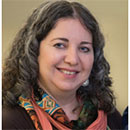Many immigrants think that having their credentials evaluated means they can work in their profession in Canada as they did in their home countries. Unfortunately, this is not true. However, having your credentials evaluated is the first step towards working in your profession.
First, I would like to explain the difference between “credential evaluation” and “credential accreditation” as they are different processes.
There are two credential assessments/evaluation agencies in Canada: World Education Services or WES (located in Toronto) and International Credential Evaluation Services or ICES (located in Burnaby, BC). Evaluation/assessment agencies don’t have the authority to decide whether your studies and/or experience are comparable to those required by employers in Canada. They can only assess three things: 1) whether you studied where you say you did; 2) whether the institution exists and is recognized by the educational regulatory body in your country and 3) what level (in years) is this education comparable to similar studies in Canada.
As an immigrant who is a professional, you need to be aware that many professional regulatory bodies don’t accept either WES or ICES results: this is true for the Association of Professional Engineers and Geoscientists of BC, the Applied Science Technologists and Technicians of BC, and The Ministry of Education Licensing Branch, among others. This means that before you send your transcripts to WES or ICES, you need to check with the appropriate regulatory body in Canada.
Credential accreditation is a different story. About 20 percent of all occupations and professions are regulated in Canada. Some have different regulatory bodies with different requirements depending on which province you want to work in. For some careers, such as nursing, K-12 teaching, medicine and trades such as electricians, to name a few, accreditation is mandatory (i.e. you need to obtain a license or ticket in order to work or carry the professional designation). Other careers are regulated only for certain levels of performance, such as for engineers, technicians, non-professional accountants and some trades.
Regulatory bodies tend to have their own assessment and accreditation/licensing system. They may include evaluation of transcripts, exams, interviews, supervised work experience, professional references and even further studies in Canada, such as industry legislation, ethics, technical courses and professional English.
Finally, neither the assessments nor the accreditation process guarantees a job: this is very important to understand. If your career is regulated, you’ll need to go through the process like it or not, but this means you’ll likely start at an entry-level. Because the process with the regulatory body may take a while, you may need to take on a ‘survival job’ which may or may not be related to your field, until you get your license.
What do these mean to you?
First, you need to find out whether or not your occupation is regulated. Second, you need to contact your regulatory body and find out what steps apply to your particular case. Third, you need to have your priorities clear – you need a plan B: some licensing processes may take years and are costly, so you’ll need to decide if this works for you situation: do you have the time, money and energy this requires?
If you are in doubt, the best approach is to get a consultation with a certified and experienced career counsellor. It is also a good idea to have a few informational interviews with people already working in the industry and to talk with advisors from the appropriate regulatory body before making a decision that may impact how well you start your new path in Canada.



 About Silva:
About Silva: